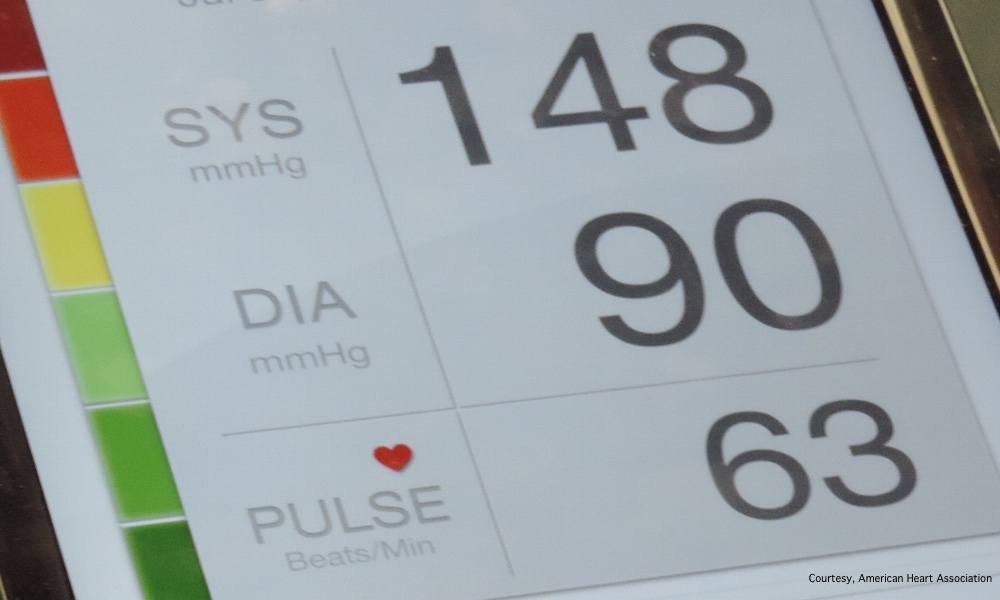People diagnosed with hypertension, better known as high blood pressure, generally have atherosclerosis — hardened, narrowed arteries that cause the force of blood running through their blood vessels to be too high and consistently above the recommended guidelines.
Systolic pressure — the top number in a blood pressure reading, reflects the amount of pressure of the blood in the arteries when the heart is contracting during a beat. It should be 120 or less. The bottom, diastolic pressure. reading reflects blood pressure as the heart is relaxing between beats. It should be 80 or less.
Roughly half of adult Americans have blood pressure that is above this range.
The usual treatment for high blood pressure is a combination of lifestyle changes and medication. But since there’s more than one drug available, the question remained: Which one is the best medication to take? A recent study looked at the pros and cons of the two classes of drugs prescribed to lower blood pressure.
To see if one hypertension drug had clear advantages over the other, researchers at Columbia University analyzed patients' experiences on angiotensin-converting enzyme (ACE) inhibitors (the kind more commonly prescribed for first time treatment) and angiotensin receptor blockers (ARBS). Both medications affect a group of hormones that act together to regulate blood pressure known as the renin-angiotensin system.“We did not detect a difference in how the two types of medicine reduced the complications of hypertension, but we did see a difference in side effects.”
ACE inhibitors lower blood pressure by blocking an enzyme early in the system so that less angiotensin (a chemical that narrows blood vessels) is produced. This way blood vessels remain more open and relaxed, lowering pressure. Angiotensin receptor blockers, as their name implies, help keep blood vessels open wider by blocking receptors in veins and arteries to which angiotensin attaches.
The health records and insurance claim databases of almost three million patients in the United States, Germany and South Korea, who were taking a blood pressure medication for the first time between 1996-2018 and had no history of heart disease or stroke, were reviewed for the study.
What the researchers concluded after analyzing the data is that both drug types work equally well, but the less popularly-prescribed ARBs were found to have fewer side effects. “We did not detect a difference in how the two types of medicine reduced the complications of hypertension,” George Hripcsak, senior author of the study and professor and chair of biomedical informatics at Columbia University Vagelos College of Physicians and Surgeons, said in a statement, “but we did see a difference in side effects.”Patients taking ACE inhibitors were over three times more likely to develop angioedema, an accumulation of fluid and swelling in the skin and mucous membranes.
Researchers found that compared to those taking ARBs, patients taking ACE inhibitors were over three times more likely to develop angioedema, an accumulation of fluid and swelling in the skin and mucous membranes. They were a third more likely to develop a dry, persistent and bothersome cough and pancreatitis, the sudden inflammation of the pancreas and 18 percent more likely to develop gastrointestinal bleeding.
The takeaway for doctors and patients? “If a patient is starting hypertension therapy for the first time, our results point to starting with the ARB over the ACE inhibitor,” Hripcsak said.
There are plenty of things you can do to help keep blood pressure in check and your need for medication at a minimum. The Centers for Disease Control (CDC) recommends:
- Eating a healthy diet with plenty of fresh fruits and veggies
- Keeping yourself at a healthy weight
- Being physically active
- Not smoking
- Limiting alcohol
- Getting enough sleep
The study is published in Hypertension Journal.





